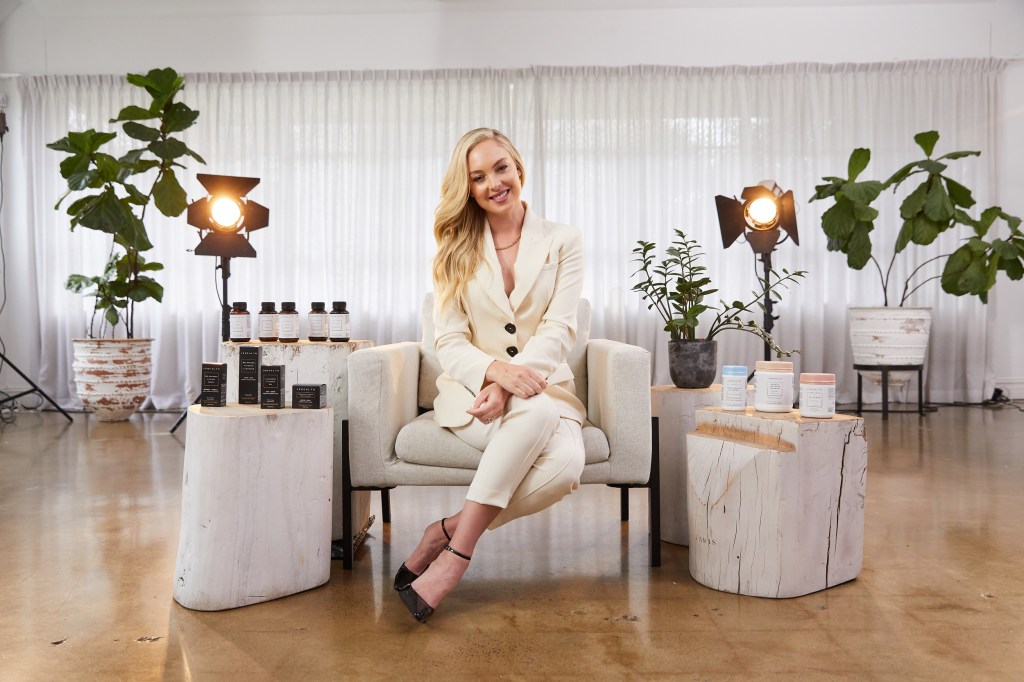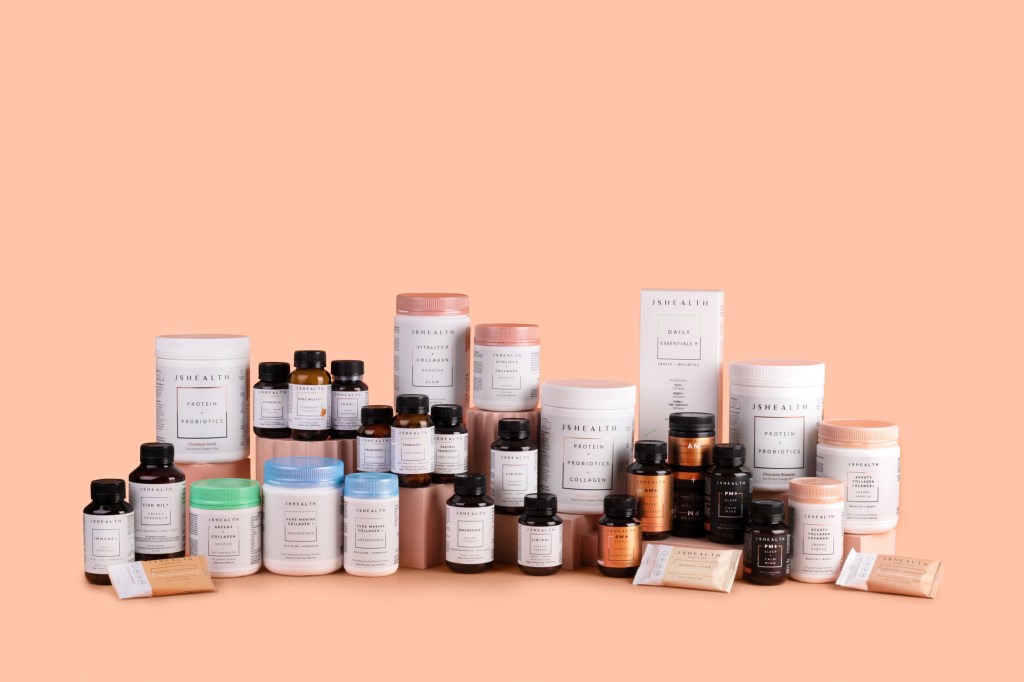Founder of vitamins company JSHealth, 33-year-old Jessica Sepel, turned her last $40,000 into a nearly-half-a-billion-dollar empire. Here’s how.

When Jessica Sepel was 13 years old, she developed an unhealthy relationship with food and body dysmorphia. She’d just emigrated from her home country, South Africa, and struggled with the move.
Sepel recalls latching onto fad diets she discovered through celebrity magazines or TV as a means of gaining control. “There wasn’t even social media, which makes it scarier,” she says. “Really, I was just on a mission to look a certain way – being slim became my goal in life.”
For the next 10 years, Sepel says she continued to struggle with her body and her relationship with food. Eventually, her fixation would lead her to study health and nutrition, where she learned the foundations for a healthy, balanced diet. She quit fad dieting and in 2012, she began blogging about her journey: “Through Blogspot – would you believe it!” she says, with a chuckle.
“Instead of makeup, I had shelves and shelves of vitamins in my bathroom. My sisters will tell you, they thought I was very weird.”
– Jessica Sepel, founder of JS Health
Within days of turning that blog from private to public, she had around 20,000 site visits. “That’s where the JS Health community really began,” she says. A few months after that, Sepel launched an e-book that sold around 10,000 copies. In 2014, she was approached by two publishing houses to write a book.
“I was 25 years old – I had no idea what was going on,” she recalls. “It was just such good timing for me, because the health industry was just starting to have its moment. If I think back to those six-to-eight years, that was really transformative. It was probably the best time of my career.”
But if she thinks about what direction her career would go from that point – and she does, for a minute – she is certain it was always going to be supplements.
“I’ve had an obsession with vitamins and supplements since I was young,” she says. “Instead of makeup, I had shelves and shelves of vitamins in my bathroom. My sisters will tell you, they thought I was very weird.”
“I grew up in an interesting family – my grandmother was a hippie and very alternative. She would drink her lemon water, take her probiotics and have cold showers, eating her papaya and yoghurt – all these things that are trending now – and she would have trays and trays of vitamins.”
In 2017, Sepel felt she was ready to create her own supplements, but it was difficult to break into the industry. “We could just not find the right vitamin manufacturer,” she recalls. “I remember being on a walk with my husband [Dean Steingold] who is the CEO, and he said, ‘It’s just not going to work out’.”
The couple tried to create healthy cereals – and even lost $10,000 to a vitamin manufacturer who Sepel claims likely wasn’t legitimate. It wasn’t until late 2018 when the company came across their current, Australian manufacture, that JSHealth was finally on a path to success.
“We literally had $40,000 left, and it was like, ‘Where are we going to put it?’ [The manufacturer] was doing me a favour, because we only wanted to do a small run of 5000 units. They’d never done that before, but he really believed in me.”

Initially, it was the classic startup operation – Sepel and a team of five working out the back of her house. “It was hysterical,” she says. “I used to wake up at eight in the morning, go downstairs and see a group of girls packing orders.”
Today, the company produces over 40 different vitamin types, as well as a haircare range, protein powders and other powdered formulas. JSHealth is stocked in more than 3,000 retailers worldwide, including Priceline (where Sepel once worked), Chemist Warehouse, Boots, Selfridges and Harrods – and it is planning a US retail expansion in 2023. Naturally, they’ve also moved out of Sepel’s house and into an office in Sydney. The company was last valued at $426 million.
The company’s Hair + Libido formula has sold out five times since its launch, and its IBS Relief Formula sold out one month after launch. The company’s revenue has increased 57% year-on-year and, globally, the team has expanded 50% year-on-year.
Sepel says it’s down to the vitamins industry simply needing a refresh. “People were so confused and overwhelmed by the vitamin industry,” she says. “Putting the pain point – or the solution – on the label, like ‘Anxiety and Stress’, I didn’t realise what I was doing, but it had actually never been done before.”
Sepel says the customer return rate is now 75%, which means three-quarters of customers that purchase a vitamin are coming back to repurchase.
Globally, the overall dietary supplement market was valued at US$152 billion in 2021, with a compound annual growth rate of 8.9% from 2022 to 2030. And the movement is certainly catching on in Australia, with a new, local vitamin subscription startup, Vitable, launching in 2019 and raising about $9.5 million in equity so far.
Sepel says the plan is to continue its US expansion and roll out new products, including skincare made with vitamins, like an SPF and a vitamin eye serum.
Jessica Sepel will be speaking at Forbes Australia’s inaugural Business Summit on Friday November 18th. The Summit features Australia’s top founders and visionaries, and is your definitive playbook to lead, innovate and grow.